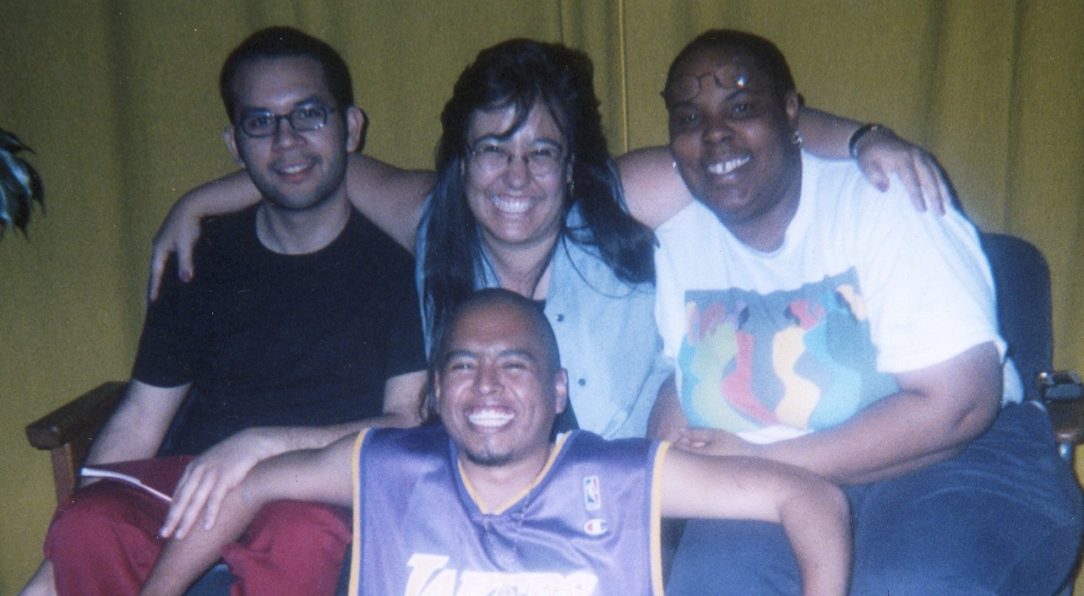
By Omar González, PhD
I remember the calm voice of my future caseworker, Trish. She called me at work to set up an appointment for lunch to discuss the services offered at allgo. I had just recovered from a bout of pneumocystis carinii pneumonia and did not see much of a point in trying to survive. My self-fulfilling prophecy of not seeing the age of 30 seemed realistic. I had read about the life-saving medications known as the “AIDS cocktail” but thought it was out of reach because of my lack of health insurance. I was slowly accepting my demise at twenty-six. Over lunch, she told me about ADAP, HOPWA, and other services. I remember feeling hope for the first time in years. When she saw me tear up, she squeezed my hand and smiled. allgo saved my life.
The next year, with my health at an optimal peak, I began to attend events at allgo, its office located on the East Side (pre-gentrification—the only white people ever seen in the area were definitely lost), and I began to feel a sense of community I had never felt as a queer Xicanx living with AIDS. Soon thereafter, one of the health educators was leaving allgo and recommended me to apply. When I walked into the office as a staff member, I failed to recognize the momentous shift in my life. Later, I would reflect on this day while re-reading Gloria Anzaldúa’s Borderlands/La Frontera: The New Mestiza (1987). She uses the metaphor of “entering the serpent” as one of the stages of her decolonial methodology of “mestiza consciousness.” I allowed the serpent to devour my colonized mind as I shed the intersectional skins of white supremacy, internalized homophobia, and patriarchal capitalism. Being surrounded by radically fierce queer people of color (especially butch lesbians of color!), I felt a sense of purpose and discovered my writer’s voice, my activist’s voice, my feminine voice.
We ate together. We celebrated together. We raged together. We cried together. allgo began to be located as part of my innerspace—I had finally found home; no longer would I fear going home as Anzladúa eloquently writes.
Nearly twenty years after my brief tenure at allgo and having relocated my physical self to the West Coast, my spiritual/emotional self continues to be housed at allgo. I feel ancestrally connected to those brave activists who started allgo on Día de la Raza, 1985. I feel kinship with those who walked through allgo’s doors to receive services because of their HIV/AIDS diagnosis. I feel gratitude to the previous staff and those who followed who made allgo an integral part of the LGBTQ+ PoC community in the central Texas area. I feel in awe of my dear comadre, Priscilla Hale, allgo Executive Director, who in her multiple talents has been instrumental in keeping allgo’s doors open for two decades. I feel peace knowing that when my spirit sheds its disfigured and tired shell, my queer indigenous Brown energy will join the others whose lives were improved by the existence of allgo and have since transitioned.
For thirty-five years, allgo has represented community, home, and, most critically, Love. ¡Viva allgo!


